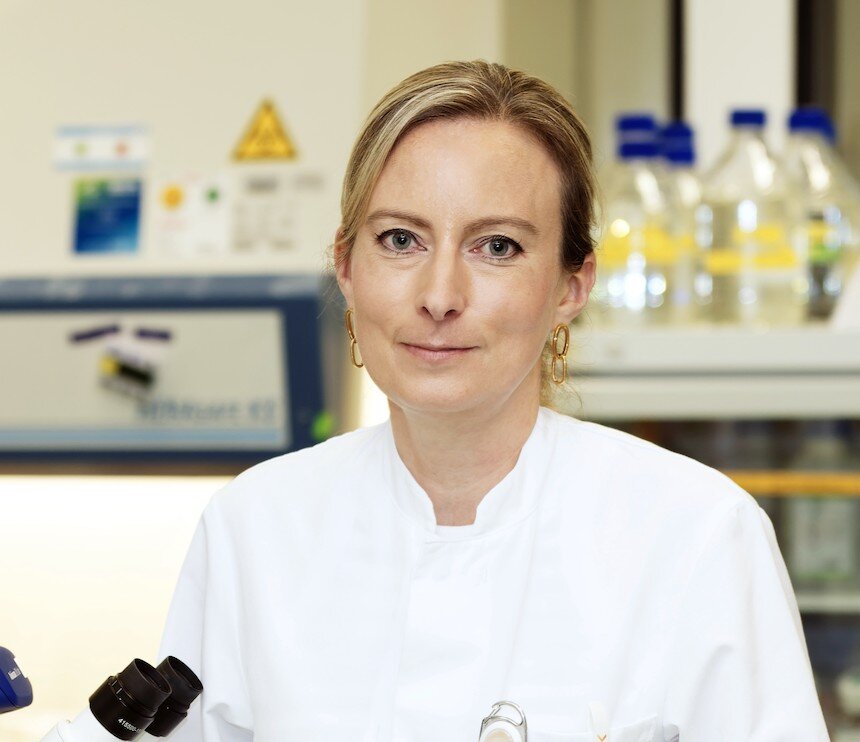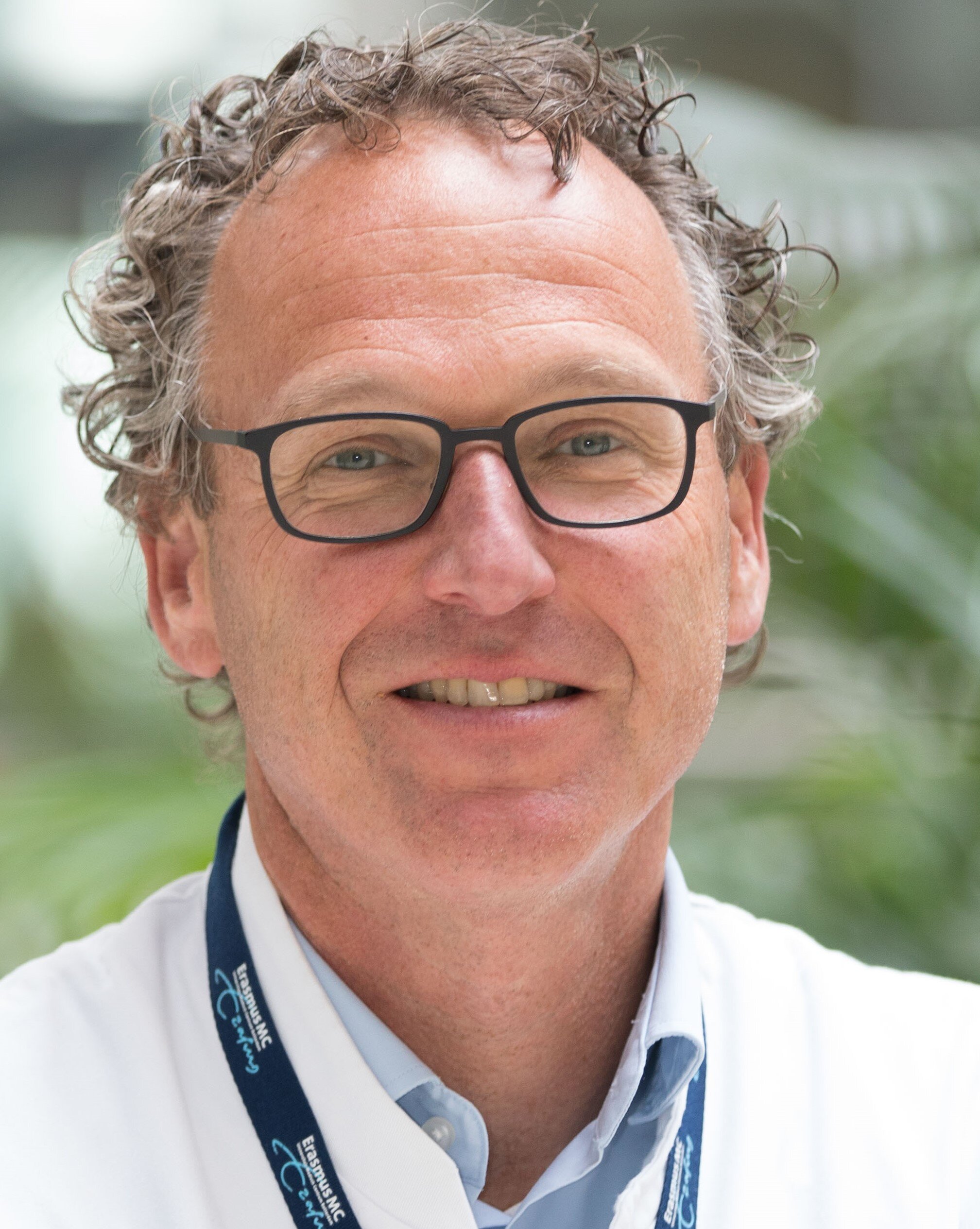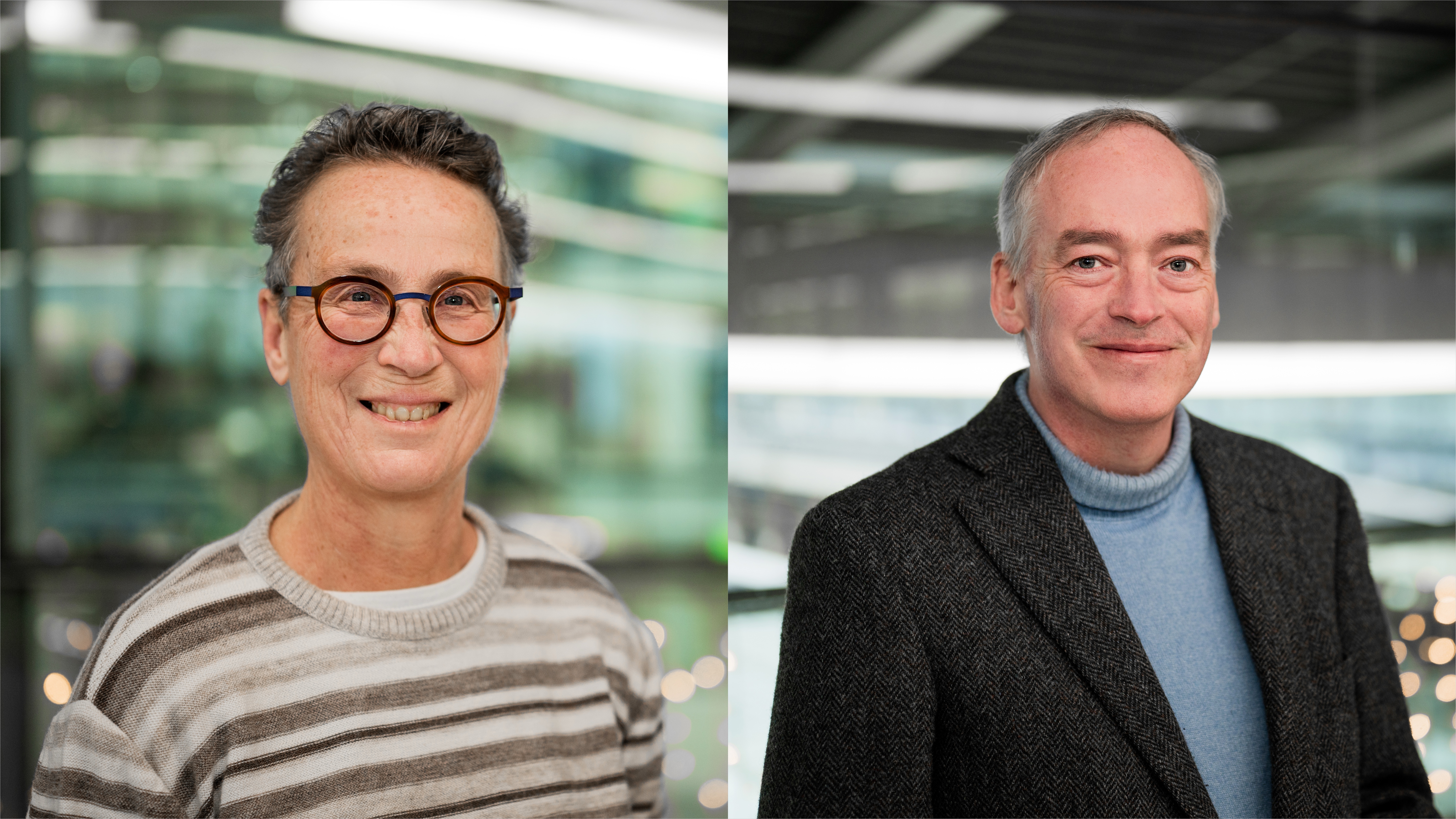Impact on health
Strategic activities 2024
In 2024, Oncode Institute continued to ensure that scientific research contributes to practical innovations that improve healthcare. We organised two clinical seminars – one on stomach and oesophageal cancer and one on myelodysplastic syndrome (MDS) – together with experts from Amsterdam UMC, Erasmus MC, and the Princess Máxima Center. These seminars strengthened the link between research and clinical practice. They also provided new insights into the needs of patients and how scientific research can contribute to meeting these needs.
We also organised seminars with the new Oncode Exploratory Development Expert Support (OEDES) team of clinical development experts to explore development opportunities. During these seminars, Oncode Investigators, the valorisation team, and the OEDES team collaborated to develop ideas for clinical projects and turn them into concrete study plans.
Three patient representatives were invited to the Oncode Institute’s Annual Meeting 2024. They shared their experiences of patient participation in international grant applications and explained how fundamental research can benefit from the involvement of cancer patients. Patient representatives and medical specialists also played a pivotal role during the annual Oncode Investigator dinner.
They provided feedback on pitches from researchers for the CPoC programme and participated in discussions to define the medical necessity of projects as accurately as possible. Where possible and relevant, companies also participated in the CPoC programme. One example is the collaboration between the Schneider lab at Erasmus MC, VUmc Hovon, and the company Active Biotech. They are working together on the existing drug tasquinimod, which is being tested for the treatment of a rare form of blood cancer using the ‘drug repurposing’ principle. This study started in 2024, and the first patient will be treated in 2025.

Rebekka Schneider
Oncode Investigator
“It has always been my dream to bring our research results to the clinic, and with the launch of the TasquForceMPN study in collaboration with HOVON, this has become a reality. This is also the starting point for Oncode Institute. Thanks to the support of Oncode Institute, we can now use our extensive single-cell RNA data from patients innovatively, accelerating the translation to the clinic.”
“
Results
In developing scientific discoveries for clinical application, reaching the clinical development phase is an important milestone. In this phase, a discovery is taken out of the lab to be tested in patients. With three new projects initiated in 2024, our clinical portfolio expanded to seventeen products in the clinical development phase. The CPoC programme was also an important driver of progress in 2024.
Two CPoC projects were completed: the patient stratification test developed by the Kanaar lab for personalised breast cancer treatment, and the first clinical evaluation of the therapeutic vaccine developed by the Van der Burg lab. This is an essential step towards further research and development for both groups of scientists. In addition, a new CPoC project was approved, in which scientists from the Van Rheenen lab are investigating whether timing chemotherapy treatment for breast cancer in a specific phase of the patient’s menstrual cycle positively influences the outcome, as described in chapter three. All these projects accelerate the development of new therapies to improve healthcare.

Joachim Aerts
Professor of Pulmonary Medicine
Erasmus MC
“There is much interest in research among doctors, but most lack the time and knowledge. As a result, brilliant ideas often get stuck in the pipeline. For a project like the TEIPP Trial, you need someone who sees the added value of clinical research, dares to translate it into practice and takes responsibility for conducting the clinical trial.
This ‘on-the-go’ approach of the CPoC programme really makes the difference. In the event of an unexpected clinical response, you have to be able to act quickly to maintain momentum. Thanks to the involvement of Oncode Institute, this was possible. That is what makes it so powerful. I think the added value of doctors who can translate research findings into successful trials is often underestimated. That is why our collaboration is so strong.”
“
Impact & future
Impact on health: working together towards accessible healthcare
In addition to more effective treatments, we are committed to making healthcare accessible and affordable. For example, we are committed to accelerating treatment optimisation and diagnostics for drug repurposing – the re-use of existing drugs for other conditions. This saves time and money. We are also developing technologies that improve patient stratification, enabling treatments to be better tailored to an individual patient’s needs.
One example is the Sturgeon technology, which brain surgeons are now using in hospitals to operate more efficiently. Just two years after its invention, Sturgeon technology is already being used in children with brain tumours and is currently being further developed for use in adults. Through strategic partnerships such as these, we continue to accelerate innovation and increase our global impact on patient health. Oncode Institute remains committed to the future of healthcare.

Eelco Hoving
Kinderneurochirurg & Klinisch Directeur Neuro-Oncologie
Prinses Máxima Centrum
“During surgery, we sometimes deliberately leave a small amount of tumour tissue behind to prevent damage to the brain. However, if it later turns out to be an aggressive tumour, a second operation may be necessary, which involves further risks and a great deal of stress for the child and their family. Thanks to rapid DNA analysis, we now know what type of tumour we are dealing with during the first operation. Sturgeon technology enables us to make better and safer decisions at the right time.”
“
Managementsamenvatting
Een jaar van versnelling, verbinding en impact
Oncode Institute brengt al sinds 2018 Nederlandse topwetenschappers en partnerinstituten samen om baanbrekend kankeronderzoek sneller te vertalen naar klinische toepassingen.
Ook in 2024 boekte Oncode Institute tastbare vooruitgang in haar missie om kanker te slim af te zijn. Met een unieke combinatie van excellente wetenschap, intensieve samenwerking en proactieve valorisatie, versnelde Oncode Institute de vertaalslag van fundamentele ontdekkingen naar toepassingen die impact hebben op patiënten en de samenleving.
Wetenschappelijke doorbraken
De onderzoeksgemeenschap van Oncode Institute groeide met tien nieuwe Junior Investigators, verspreid over tien partnerinstituten. Hierdoor groeide het onderzoeksnetwerk van 52 naar 62 onderzoeksteams. Dit versterkte de kennisbasis, waardoor talrijke fundamentele inzichten hun weg vonden naar klinische toepassing. In 2024 publiceerden Oncode Investigators honderden artikelen en haalden zij gezamenlijk 66,9 miljoen euro aan externe onderzoeksfinanciering binnen. Daarbij behoorden veel publicaties tot de wereldwijde top tien procent van meest geciteerde wetenschappelijke werken.
Dankzij financieringsprogramma’s van Oncode Institute zoals de Base Research Funding en het Clinical Proof of Concept (CPoC)-programma konden Oncode Investigators innovatieve klinische projecten starten en snel eerste klinische resultaten behalen. Een treffend voorbeeld hoe wij bruggen slaan tussen kennis en toepassing is het onderzoek van Jacco van Rheenen (Oncode Investigator) naar de invloed van de menstruatiecyclus op de effectiviteit van chemotherapie bij muizen. De resultaten van het fundamentele onderzoek van Van Rheenen en zijn collega’s zijn de basis voor een klinische studie.
"In 2024 publiceerden Oncode Investigators honderden artikelen en haalden zij gezamenlijk 66,9 miljoen euro aan externe onderzoeksfinanciering binnen."
Valorisatie en economische impact
In 2024 diende Oncode Institute een recordaantal van 25 nieuwe octrooiaanvragen in en werden 47 nieuwe vindingen geregistreerd. De rechten rond negen uitvindingen werden gelicentieerd en zes nieuwe technologieontwikkelingsprojecten werden gestart. Meerdere spin-offs, waaronder Laigo Bio, Flindr Therapeutics en Cell Control, haalden miljoeneninvesteringen op. Via het Oncology Bridge Fund werden nieuwe bedrijven, sCellGen en Polar Oncology opgericht. Iedere euro die wordt geïnvesteerd via dit fonds levert gemiddeld veertien euro aan vervolginvesteringen op, en worden tientallen nieuwe banen in de biotechsector gecreëerd. Dankzij de samenwerking tussen Oncode Accelerator en Cancer Research Horizons werd de internationale samenwerking op het gebied van expertise en innovatie verder versterkt.
Gezondheid en patiëntgerichte innovatie
Met workshops versterkte Oncode Institute de verbinding tussen onderzoek en klinische praktijk, onder andere op het gebied van maag- en slokdarmkanker en innovatieve klinische ontwikkeltrajecten. Bij de beoordeling van nieuwe klinische projecten werd binnen het Patiënt Participatie Programma actief samengewerkt met patiëntvertegenwoordigers, waardoor onderzoeksvoorstellen beter aansluiten op de behoeften van patiënten. Een sprekend voorbeeld hiervan is het werk van Jeroen de Ridder (Oncode Investigator) waarbij de klinische toepassing van een nieuwe technologie, de Sturgeon-technologie voor hersenchirurgie, uiteindelijke invloed heeft op de patiënt.
Vooruitblik
Ook in 2025 blijft Oncode Institute investeren in excellente wetenschap, grensoverschrijdende samenwerking en proactieve valorisatie. Dankzij haar unieke ecosysteem blijft Oncode Institute de weg van laboratorium naar patiënt versnellen en zo economische en maatschappelijke waarde creëren.
